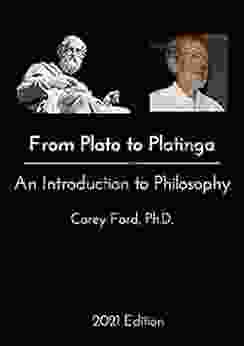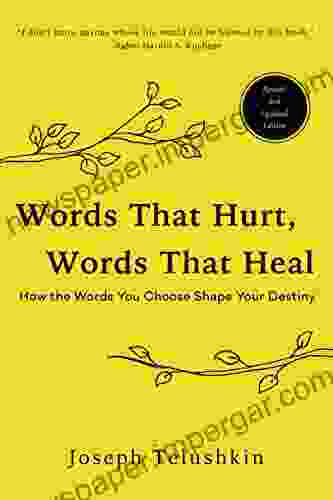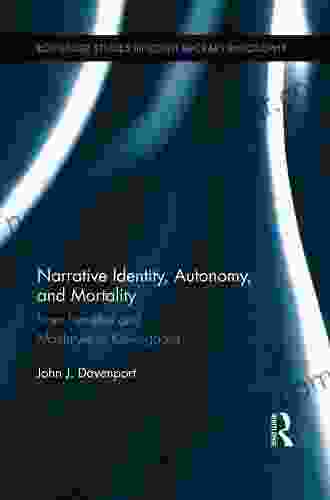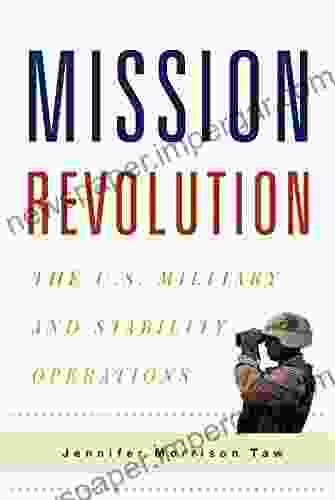From Frankfurt and MacIntyre to Kierkegaard: Exploring the Moral and Spiritual Roots of Contemporary Thought

4.3 out of 5
| Language | : | English |
| File size | : | 848 KB |
| Text-to-Speech | : | Enabled |
| Screen Reader | : | Supported |
| Enhanced typesetting | : | Enabled |
| Word Wise | : | Enabled |
| Print length | : | 249 pages |
In this book, we will explore the moral and spiritual roots of contemporary thought through the lens of three major philosophers: Harry Frankfurt, Alasdair MacIntyre, and Søren Kierkegaard. These thinkers have had a profound influence on the way we think about morality and spirituality, and their work continues to be debated and discussed today.
Frankfurt is best known for his work on free will and moral responsibility. He argues that free will is not simply the ability to do whatever we want, but rather the ability to act in accordance with our own values and desires. MacIntyre is best known for his work on virtue ethics. He argues that morality is not simply a matter of following rules, but rather a matter of living a virtuous life. Kierkegaard is best known for his work on existentialism. He argues that human beings are fundamentally free and responsible for their own choices.
These three thinkers offer us different but complementary perspectives on the human condition and the nature of morality and spirituality. By exploring their work, we can gain a deeper understanding of ourselves and our place in the world.
Chapter 1: Harry Frankfurt on Free Will and Moral Responsibility
In this chapter, we will explore Frankfurt's work on free will and moral responsibility. Frankfurt argues that free will is not simply the ability to do whatever we want, but rather the ability to act in accordance with our own values and desires. He distinguishes between two kinds of freedom: the freedom of the will and the freedom of action. The freedom of the will is the ability to choose our own values and desires, while the freedom of action is the ability to act in accordance with our choices.
Frankfurt argues that the freedom of the will is essential for moral responsibility. He argues that we cannot be held responsible for our actions unless we have the ability to choose our own values and desires. However, he also argues that the freedom of action is not sufficient for moral responsibility. He argues that we can only be held responsible for our actions if we have the ability to act in accordance with our choices.
Chapter 2: Alasdair MacIntyre on Virtue Ethics
In this chapter, we will explore MacIntyre's work on virtue ethics. MacIntyre argues that morality is not simply a matter of following rules, but rather a matter of living a virtuous life. He argues that virtues are character traits that enable us to live a good life. He identifies four cardinal virtues: prudence, temperance, courage, and justice.
MacIntyre argues that the virtues are essential for human flourishing. He argues that we cannot live a good life without the virtues. However, he also argues that the virtues are not simply a matter of individual choice. He argues that the virtues are embedded in our social and cultural traditions.
Chapter 3: Søren Kierkegaard on Existentialism
In this chapter, we will explore Kierkegaard's work on existentialism. Kierkegaard argues that human beings are fundamentally free and responsible for their own choices. He argues that we cannot escape our freedom, and that we must make choices even in the face of uncertainty and anxiety.
Kierkegaard identifies three stages of human existence: the aesthetic, the ethical, and the religious. The aesthetic stage is characterized by a focus on pleasure and immediate gratification. The ethical stage is characterized by a focus on duty and obligation. The religious stage is characterized by a focus on faith and commitment.
Kierkegaard argues that the religious stage is the highest stage of human existence. He argues that we can only find true meaning and purpose in life through faith in God.
In this book, we have explored the moral and spiritual roots of contemporary thought through the lens of three major philosophers: Harry Frankfurt, Alasdair MacIntyre, and Søren Kierkegaard. These thinkers have had a profound influence on the way we think about morality and spirituality, and their work continues to be debated and discussed today.
By exploring their work, we have gained a deeper understanding of ourselves and our place in the world. We have seen that we are free and responsible for our own choices, and that we must live our lives in accordance with our values and desires. We have also seen that we are not alone in our struggles, and that there is hope for meaning and purpose in life.
4.3 out of 5
| Language | : | English |
| File size | : | 848 KB |
| Text-to-Speech | : | Enabled |
| Screen Reader | : | Supported |
| Enhanced typesetting | : | Enabled |
| Word Wise | : | Enabled |
| Print length | : | 249 pages |
Do you want to contribute by writing guest posts on this blog?
Please contact us and send us a resume of previous articles that you have written.
 Book
Book Novel
Novel Page
Page Chapter
Chapter Text
Text Story
Story Genre
Genre Reader
Reader Library
Library Paperback
Paperback E-book
E-book Magazine
Magazine Newspaper
Newspaper Paragraph
Paragraph Sentence
Sentence Bookmark
Bookmark Shelf
Shelf Glossary
Glossary Bibliography
Bibliography Foreword
Foreword Preface
Preface Synopsis
Synopsis Annotation
Annotation Footnote
Footnote Manuscript
Manuscript Scroll
Scroll Codex
Codex Tome
Tome Bestseller
Bestseller Classics
Classics Library card
Library card Narrative
Narrative Biography
Biography Autobiography
Autobiography Memoir
Memoir Reference
Reference Encyclopedia
Encyclopedia Joseph Goldstein
Joseph Goldstein John Ross
John Ross John Eastman
John Eastman John W Golan
John W Golan John Dutton
John Dutton Jon Winokur
Jon Winokur John Lewis Gaddis
John Lewis Gaddis Jonathan Biddle
Jonathan Biddle Jonathan Zittrain
Jonathan Zittrain John Lawrence
John Lawrence Jon Fosse
Jon Fosse Joseph Abiodun Balogun
Joseph Abiodun Balogun John Ward
John Ward Joji Parambath
Joji Parambath Jon Grinspan
Jon Grinspan Joseph P Farrell
Joseph P Farrell John Kempf
John Kempf John Rosemond
John Rosemond John G Webster
John G Webster Joseph David Job
Joseph David Job
Light bulbAdvertise smarter! Our strategic ad space ensures maximum exposure. Reserve your spot today!

 Raymond ParkerCase Study Organizational Change Models Applied Theories: The Definitive...
Raymond ParkerCase Study Organizational Change Models Applied Theories: The Definitive... Evan SimmonsFollow ·14.3k
Evan SimmonsFollow ·14.3k William FaulknerFollow ·11.2k
William FaulknerFollow ·11.2k Geoffrey BlairFollow ·9.9k
Geoffrey BlairFollow ·9.9k Felix HayesFollow ·12.5k
Felix HayesFollow ·12.5k Michael SimmonsFollow ·7.8k
Michael SimmonsFollow ·7.8k Vernon BlairFollow ·11.2k
Vernon BlairFollow ·11.2k VoltaireFollow ·7.2k
VoltaireFollow ·7.2k Jason HayesFollow ·11.4k
Jason HayesFollow ·11.4k

 Jake Powell
Jake PowellThe Constitution of the State of Colorado: A Legacy of...
Since its adoption in 1876, the...

 Devin Ross
Devin RossFrom Plato to Plantinga: A Journey Through the History of...
Philosophy is the study of...

 Robin Powell
Robin PowellWords That Hurt, Words That Heal: The Power of Language...
Words are powerful. They can...

 T.S. Eliot
T.S. EliotTantalize Your Taste Buds with Over 90 Low-Carb Ethnic...
Indulge in a Culinary Adventure with "Over...
4.3 out of 5
| Language | : | English |
| File size | : | 848 KB |
| Text-to-Speech | : | Enabled |
| Screen Reader | : | Supported |
| Enhanced typesetting | : | Enabled |
| Word Wise | : | Enabled |
| Print length | : | 249 pages |














